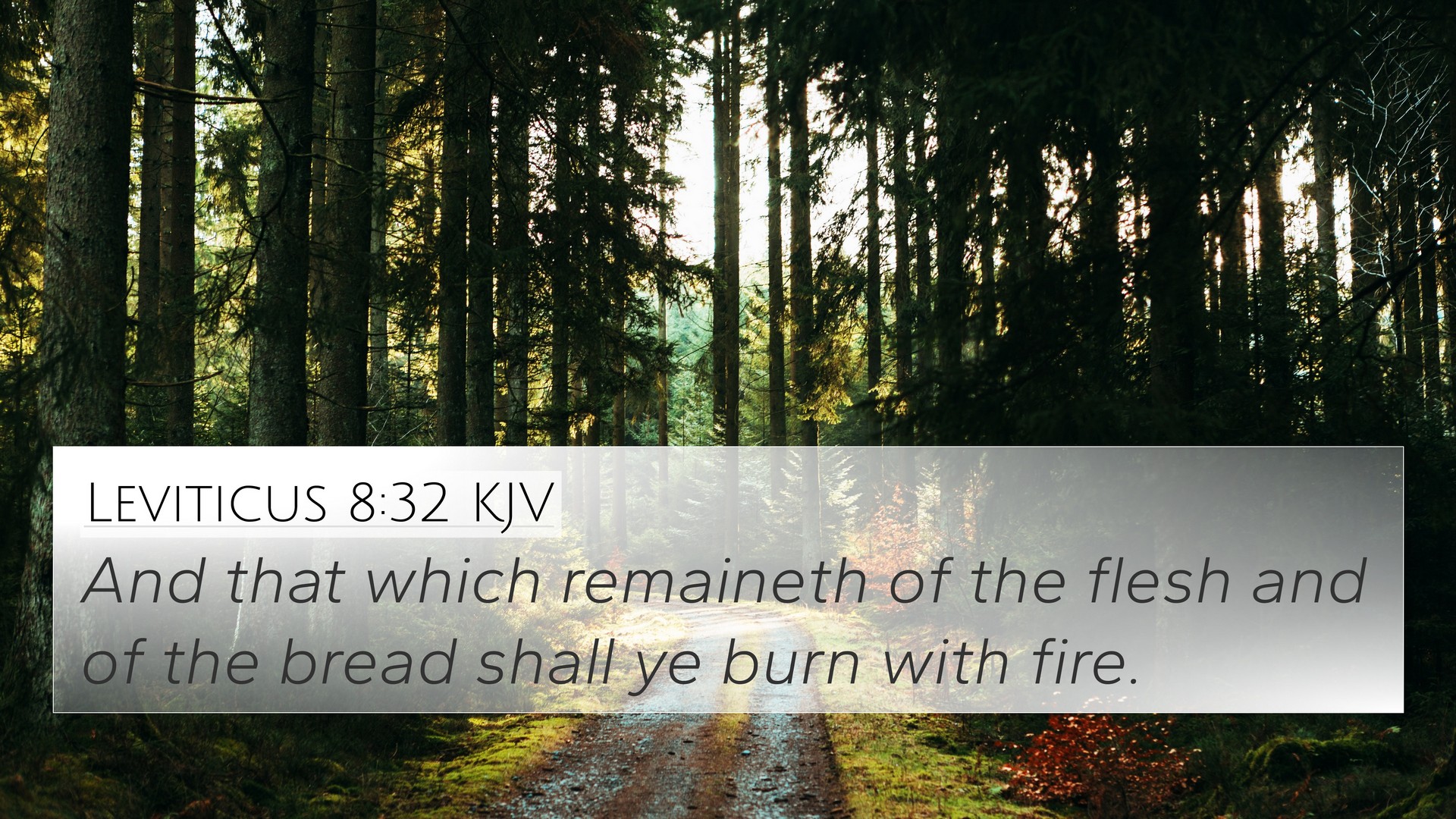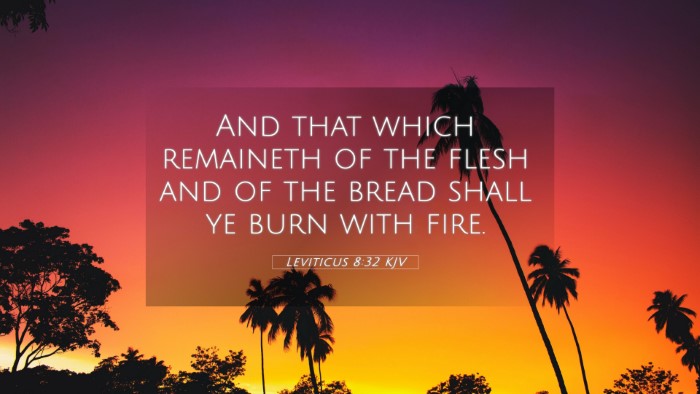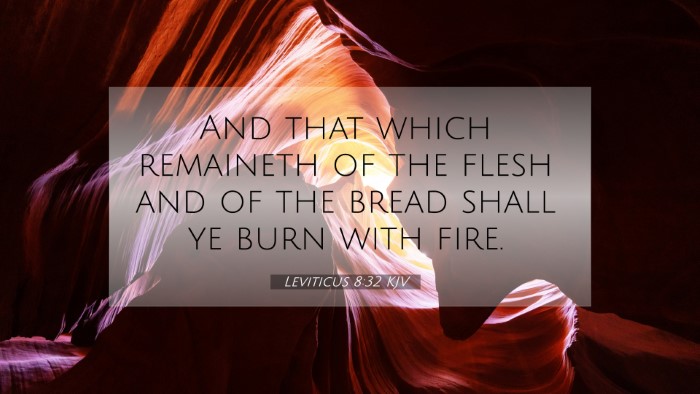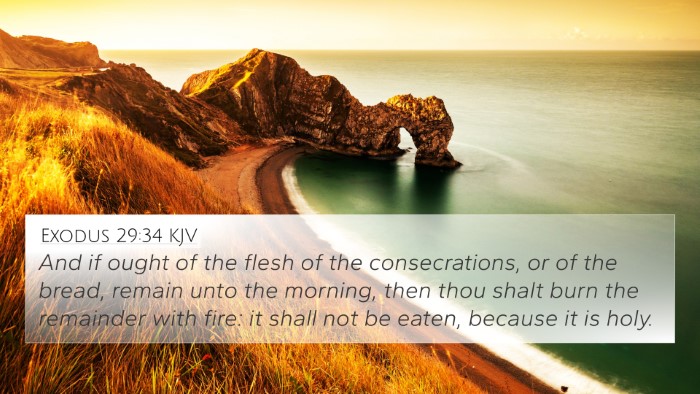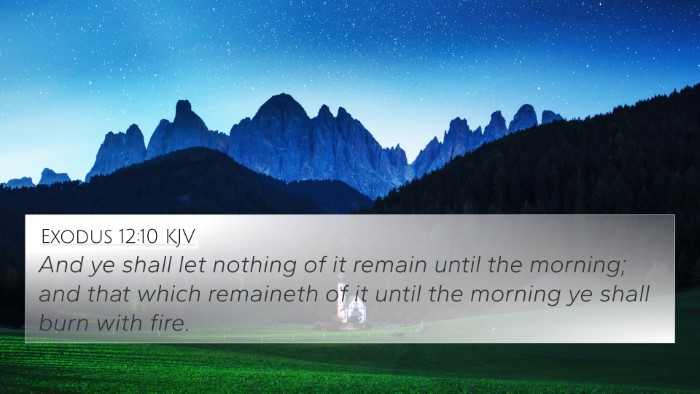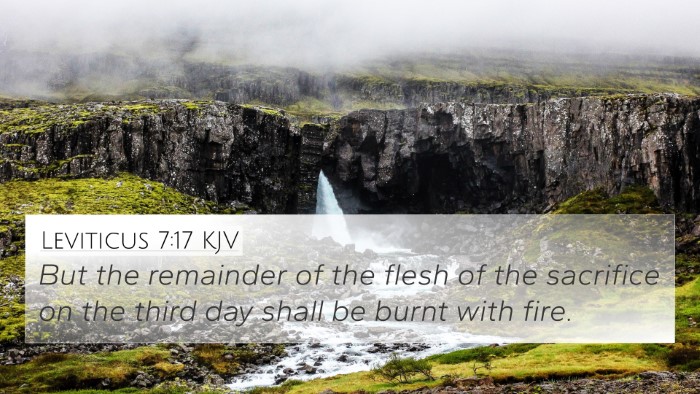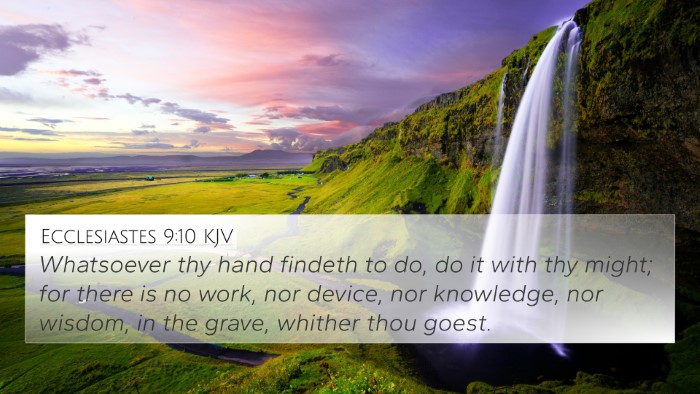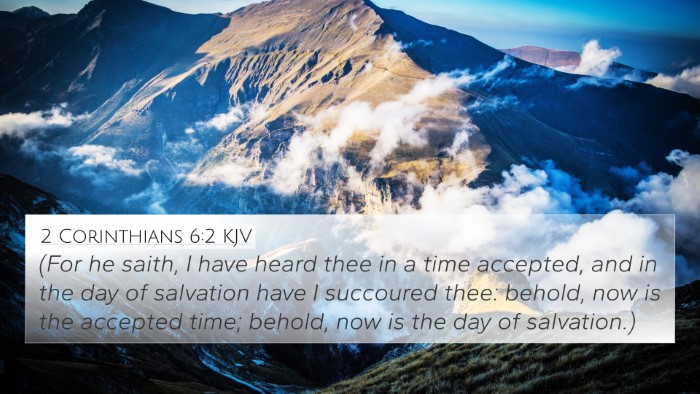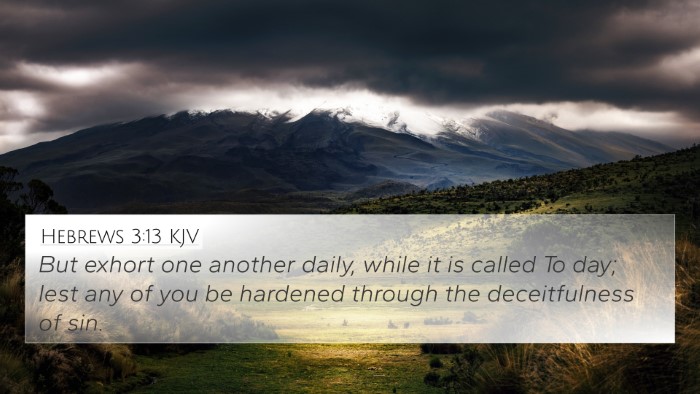Understanding Leviticus 8:32
Leviticus 8:32 states: "And that which remaineth of the flesh and of the bread shall ye burn with fire." This verse is part of the ceremonial instructions given to Moses regarding the consecration of Aaron and his sons as priests. To fully grasp its meaning, we can explore insights from prominent public domain commentaries.
Commentary Insights
Matthew Henry's Commentary
Matthew Henry emphasizes the importance of obedience to God's commandments regarding sacrifices. The act of burning the leftover flesh and bread signifies the complete sacrifice; nothing is to be left over, symbolizing total devotion to God's service. This reflects the seriousness of priestly duties and the sacredness of the offerings made to God.
Albert Barnes' Notes on the Bible
Barnes discusses the principle of elimination in sacrificial rites. He points out that burning the leftovers serves as a reminder that the items offered to God require complete consumption and dedication. This illustrates the greater theme of sanctity around offerings and the need for purity in worship practices.
Adam Clarke's Commentary
Clarke elaborates on the ritual significance behind this act. He connects it to the overall theme of holiness in the priesthood. The burning of the remnants highlights that, in God’s presence, nothing unclean or unnecessary should remain. The lingering residues are to be consumed by fire as a type of purification.
Thematic Connections and Cross-References
Leviticus 8:32 has several thematic connections and can be cross-referenced with various Biblical texts. Below are notable verse connections that elucidate the sacrificial system and its implications.
- Exodus 29:34 - Discusses the remainder of the consecration offerings, establishing a pattern for offerings made to God.
- Leviticus 3:11 - Highlights the understanding of peace offerings, and the need for obedience in sacrifices.
- Leviticus 7:17 - Relates to the proper handling of flesh from offerings, reinforcing the sanctity of God's commands.
- 1 Samuel 15:22 - Connects obedience to God as more valuable than burnt offerings, highlighting the intent behind sacrificial acts.
- Hebrews 13:10 - Draws parallels to the sacrifices offered under the Old Covenant and their significance under the New Covenant.
- Matthew 5:23-24 - Illustrates the importance of reconciliation before offerings, affirming the attitude behind sacrifices.
- Romans 12:1 - Encourages believers to present themselves as living sacrifices, alluding to the essence of the Old Testament sacrificial system.
Summary of Cross-Referencing and Biblical Themes
This verse serves as an excellent case study for those interested in cross-referencing Biblical texts. By exploring connections between Bible verses, one can understand how ritualistic practices in the Old Testament relate to New Testament themes of sacrifice and service.
Tools for Bible Cross-Referencing
Utilizing a bible concordance and bible reference resources can significantly enhance your studies. Here are some tools and techniques:
- Bible Concordance: A comprehensive tool allowing you to find related verses quickly.
- Bible Cross-Reference Guide: Useful for identifying connections between different scriptural passages.
- Cross-Reference Bible Study: Methods that help in understanding the thematic links between Old and New Testaments.
- Bible Chain References: A technique for tracing topics or themes through the Bible.
- How to Use Bible Cross-References: Includes identifying connections that enhance understanding and interpretation.
Inter-Biblical Dialogue
Understanding Leviticus 8:32 is crucial in grasping the intricate links between the Prophets and Apostolic teachings. Engaging with cross-references enhances our understanding of the continuity of God’s covenant from the Old Testament through to the New Testament. It provides a holistic view of Scripture, illustrating that the Bible can be studied through comparative Bible verse analysis and thematic Bible verse connections.
Conclusion
Leviticus 8:32 encapsulates critical elements of the sacrificial system, priestly duties, and the nature of holiness before God. By engaging with various commentaries and cross-referencing related verses, one can glean deeper insights, fostering spiritual growth and understanding of God’s covenantal relationship with humanity.
